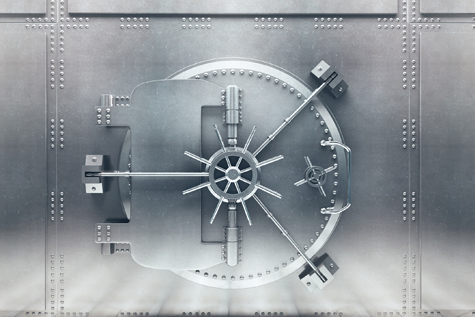
Mental, physical and financial wellbeing are interconnected – and in 2020, we’re feeling it more than ever. Research conducted by AMP has found that severe and moderate levels of financial stress are impacting 1.8 million Australian workers. In total, 50% of all Australian workers reported some level of stress about their financesi.
With the 2020 COVID-19 pandemic producing economic shockwaves most could never have predicted, avoiding this stress isn’t always easy.
Find out what steps you can take to start 2021 with your finances – and your wellbeing – in check.
If you've... had your cashflow impacted
Many Australians lost their job or had work hours reduced in 2020, through no fault of their own. While government stimulus measures such as the JobKeeper supplement gave a boost to millions of household budgets, the amount will be tapering off again in early January before wrapping up at the end of Marchii. Changes like these may have a significant impact on your personal cash flow.
If this financial situation sounds familiar, the first step is to revisit your budget – key your numbers into this calculator for a snapshot of your expected new income and your expenses. Next, review your spending habits and determine where you can save money and bring expenses in line with your current or projected cash flow. Following the 50/20/30 rule could be a practical place to start.
If you've... taken a hit to your super balance
The COVID-19 Early Release Scheme – designed to assist Australians facing financial hardship by giving them early access to their superannuation funds – has provided immediate relief for more than 3 million peopleiii.
If you made an early super withdrawal, you may like to consider how you could rebuild this money when you’re financially secure, whether that’s through additional personal contributions, spousal contributions, government assistance or super consolidation.
This is particularly important for women, with research showing that pre-COVID-19, Australian women retired with an average of 25% less super than men. In 2020, this gap grew to 29%, meaning women typically enter retirement with almost one-third less money than men.
Even if you haven’t accessed your super early, this year’s global financial fluctuations may still have affected your retirement savings balance.
Whether your superannuation account has been depleted by early access or falling sharemarket prices (or both), if you’re close to retirement, you may need to defer your plans to leave the workforce. Alternatively, look at strategies to transition out of full-time work so you can ease into retirement with sufficient finances to live the life you want.
If you've... gotten into or increased debt
Around three quarters of Australian households have some kind of debt, whether credit cards, home loans or student loans. In fact, the average household owes $168,600iv.
This year, there have been additional reasons to consider taking on more debt: 42% of Australian employees say their finances have been negatively impacted by the pandemic through business and employment disruptionv.
However, if your accounts have been overdrawn or you run late on repayments, it could impact your credit score, and then your ability to get a future loan. You might consider these simple strategies to manage your debt – from consolidating debts to evaluating which debt to pay off first.
If you've… been caught short
Australians are banking money at a record rate, with research showing household savings as a share of gross disposable income reached a high of 7.9% this year, compared to 2.7% in the prior yearvi. But while this is the average, it’s certainly not true for all households.
Data collected by the Australian Bureau of Statistics in August 2020 showed that 14% of Australian households fear they will not be able to pay their bills on time under current economic conditionsvii, and that 64% of the Australians receiving the JobKeeper payment were receiving less income than their usual pay. These concerns spotlight the need that now, more than ever, is the time to have savings tucked away for a rainy day.
Unexpected car trouble, those extra school fees you hadn’t budgeted for, an unexpected medical or vet bill – emergency savings can cover many unforeseen costs and may save you from falling into debt when you can least afford it.
Creating an emergency fund doesn’t necessarily mean depriving yourself of everyday enjoyment – it simply requires a realistic assessment of your income and spending habits, with plans in place to reach your goals. Learn why you need an emergency fund and how to build one fast.
Whatever 2021 throws your way, it’s important to have an expert in your corner to provide guidance and a helping hand. We are here for you.
i AMP Newsroom (2020): 1.8 million Australian workers suffering prolonged financial stress, costing $31 billion in lost productivity
ii The Treasury: Economic Response to the Coronavirus
iii Australian Prudential Regulation Authority (November 2020): COVID-19 Early Release Scheme – Issue 28
iv Australian Bureau of Statistics (2018): Household Debt and Over-Indebtedness in Australia
v AMP Newsroom (2020): 1.8 million Australian workers suffering prolonged financial stress, costing $31 billion in lost productivity
vi IBISWorld (September 2020): Households Stash Cash as COVID-19 Bites.
vii Australian Bureau of Statistics (August 2020): Household Impacts of COVID-19 Survey.
©AWM Services Pty Ltd. First published December 2020
|